Pamela Anderson can act? Who would have known? Gia Coppola, that’s the answer. In a stunningly raw performance, Anderson stars in The Last Showgirl as an aging showgirl for a closing Vegas-based revue who sacrifices stability for art. Gia Coppola (the granddaughter of THE Coppola) shies away from her privileged family roots to explore the hopes and dreams of the American underbelly, which premiered at last year’s TIFF festival. With a premise similar to Darren Aronofsky’s The Wrestler, does Coppola’s latest revive Pamela Anderson’s career like Mickey Rourke’s? Or is it merely a forgettable attempt at casting against type?
What’s it all about?
The Last Showgirl follows a 57-year-old showgirl, Shelly Gardner (Pamela Anderson), who has danced at The Razzle Dazzle, a French-style revue on the Las Vegas Strip, for over thirty years. She’s friends with former colleague Annette (Jamie Lee Curtis), who was forced to turn in her rhinestones after becoming too old, now working as a cocktail waitress. Shelly’s other two younger co-stars Mary-Anne (Brenda Song) and Jodie (Kiernan Shipka) view Shelly as a surrogate mother, trying to find a semblance of family after ditching home. When producer Eddie (Dave Bautista) announces the show’s closure in two weeks, the dancers scramble for new jobs while Shelly comes to terms with her dream job ending, spiraling into a nervous breakdown. She struggles to accept Vegas’ changing, obscene landscape with no savings and no plan. Desperate, she attempts to reconnect with her estranged daughter but fails. Having always prioritized romanticism over realism, Shelly is now forced to confront her uncertain future. As her final performance nears, she must find a way to survive and make peace with her past.
From the beach to the strip
I don’t recall the last time such a starry Hollywood cast all spectacularly embraced such fly-off-the-wall roles. I was recently bemoaning the lack of authentic working-class films to a friend of mine after watching Michael Curtiz’s Flamingo Road in which Joan Crawford battles the political machinery as a lowly waitress. The Last Showgirl’s roundabout cast uniformly embraces a verite style tackling issues that are all too common in America. Pamela Anderson is genuinely riveting. This is not some half-hearted vehicle for her to be taken seriously, this is just a damn good performance. Anderson masterfully captures Shelly's nervous energy, despair, hope, and contradictions with perfect balance. Coppola imbues the character with an almost screwball quality I found quite endearing. It’s a portrayal that rises above mere “poverty porn” into something nuanced and human. Her interactions with every co-star strike a truly authentic tone where 30 years of history is easily implied. In particular, the moments she shares with her estranged daughter are especially tragic where years of regret and lost time show on her face. The added dimension of being forced into a surrogate mother role by the younger dancers at Razzle Dazzle creatively adds a layer of tragedy that Anderson plays into really well.
Although the film centers on Shelly, the remaining cast also shines. Dave Bautista deserves serious mention. For a former WWE wrestler, he’s been killing it lately (take notes, Dwayne the Rock). Given his understanding of showbiz’s fleeting nature, the film likely resonated with him. Yet, instead of a loud, physical role, he delivers a restrained, awkward one—his character stoic on the surface but boiling within—making for a quietly powerful performance. If it’s up to me, Jamie Lee Curtis would have won her legacy Oscar here (but I also despise EEAAO). While she doesn’t do anything extraordinary, she counteracts Shelly’s relentless optimism with a contented reality that makes them work effectively as a duo. The younger dancers Brenda Song and Kiernan Shipka serve as the flip side of Shelly’s journey. They play these wonderful, forlorn characters lost at a different stage of their lives, searching for guidance amid all the confusion, disarray, and so-called “progress”. Still, the film hinges on Anderson’s performance, especially when she feigns a positive attitude while defending her life choices, barely concealing the deep dread of a life that may have been wasted.
It’s not always sunny
To me, passion is the core of The Last Showgirl. It’s the kind of passion that blinds, sustains, but then ultimately betrays. Shelly clings to the belief that she is part of something meaningful, but the world around her has moved on, turning what was once an art form into another disposable attraction. Thankfully, Coppola doesn’t mock this fantasy but instead examines it with a deeply humanist touch. She frames Shelly’s struggle as a part of a larger, more blunt reality: the fleeting window of opportunity for women in show business. You can argue that this is true in any field but in an industry where a women’s body is valued above their intellect, it becomes the one place where women will never outlast men. What is more universal is the choice women face between pursuing their passion and meeting caregiving expectations, a balance the film navigates wonderfully. Coppola never claims one is better than the other because we see how much Shelly desires a stable home life and the chance to have successfully raised her child. Yet, choosing a profession that would give her the means to do it would ultimately make her equally as unhappy. This battle between realism and romanticism rings true throughout the film as her point of view oscillates from shockingly wise to invariably immature. But to be an artist (even a strip-teaser) requires a sense of delusion. If dreamers were all realistic, our world would be incredibly grim and uninspiring. So, just like Shelly, we all have to lie to ourselves to get through it all.
Some shoddiness
While the performances and direction effectively tackle complex subjects like ageism and feminism, the writing itself does not. Oftentimes, characters just outright say what they’re feeling in the most plain language. At times, entire themes are essentially spelled out, which frustrates me. These mistakes waste potential and could have easily been addressed before filming. It doesn’t help that there are so many instances when Coppola scatters the film with “indie style” moody solo shots of characters staring off into space. This time could have been spent developing the film’s themes visually. However, I never once felt these ideas were ham-fisted into the screenplay. Everything explored in his film is quite earnest, just poorly executed. Fortunately, Coppola keeps the story brief as these issues never truly distract from the film’s quick 90-minute pace. What initially took me off guard was Coppola’s hazy visual style. I really hated how most of the film was shot. It has this strange kind of grunge aesthetic as each frame has these frayed edges caused by a strange depth of field. I’m not sure what kind of lensing or lighting strategy the cinematographer Autumn Durald Arkapaw took, but it does not work. It all has the effect the filmmakers are trying to be “real”. This is carried onto the visual grammar where Coppola opts for a messy, handheld approach throughout, rarely breaking away from it even when the story demands it. It’s a complete overcompensation especially when the actors perform the way they do. Thankfully, the film’s blocking and editing sidestep some of these issues, allowing the actors freedom to perform.
Vaudeville Spirit
The Last Showgirl may have its technical shortcomings and stumbles in parts with the writing, but its heart is undeniably in the right place. Coppola’s treatment of Shelly offers a refreshing humanism in a genre that often punishes or despises its characters. The film instead captures the rare and increasingly relevant struggle of living paycheck to paycheck while trying to make something of one's life. Despite some minor missteps, Coppola remains disciplined in crafting a tightly constructed character piece. There were moments when the film could have gone off-track, especially during Shelly’s prolonged low points, but Coppola maintains focus. It’s a tough task that’s mostly pulled off, despite a few bumps.


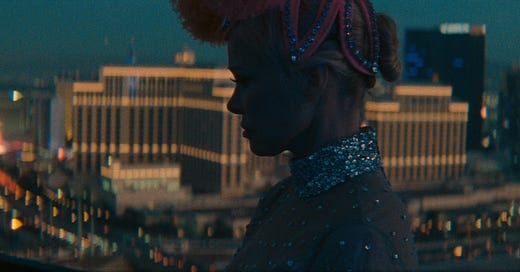


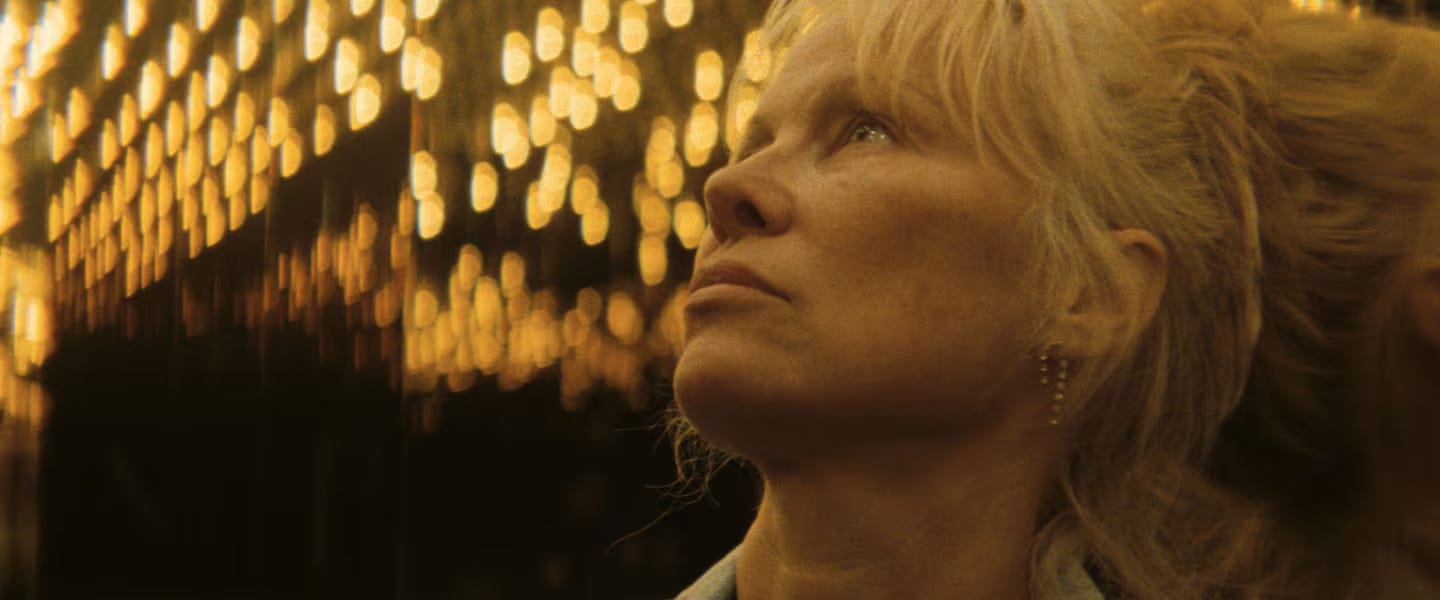
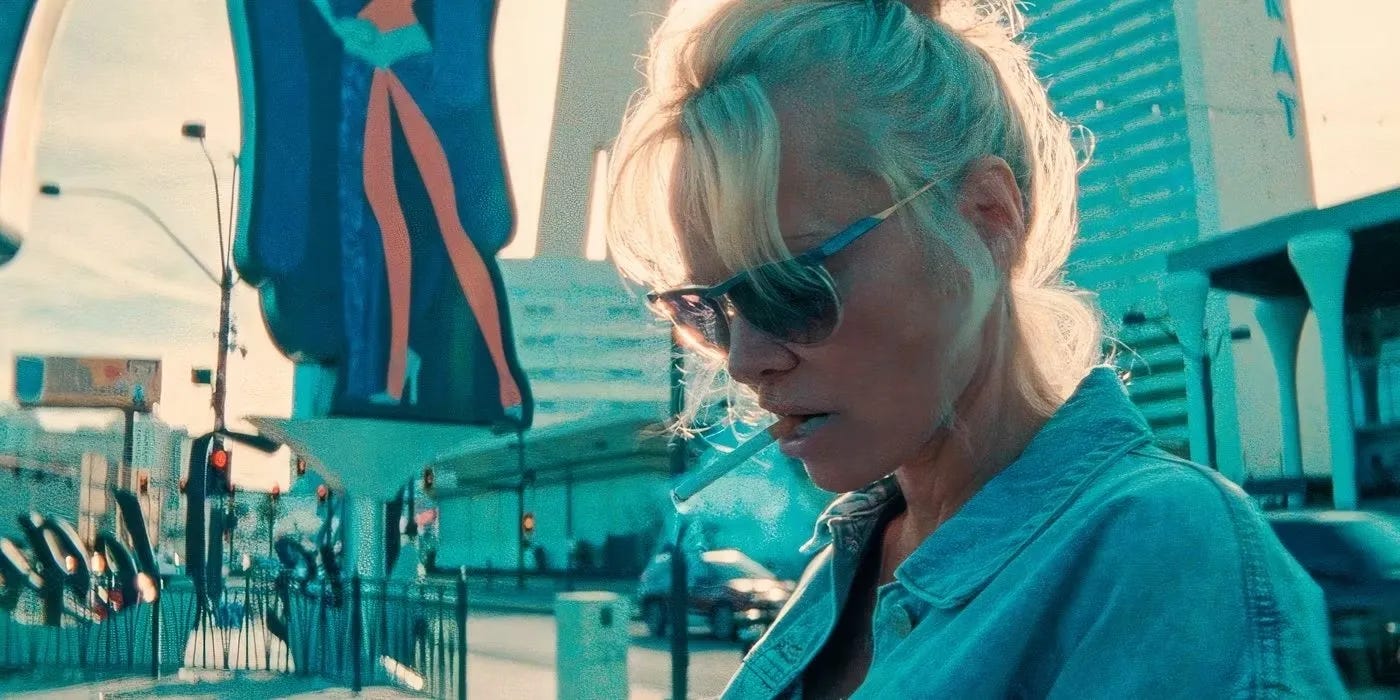
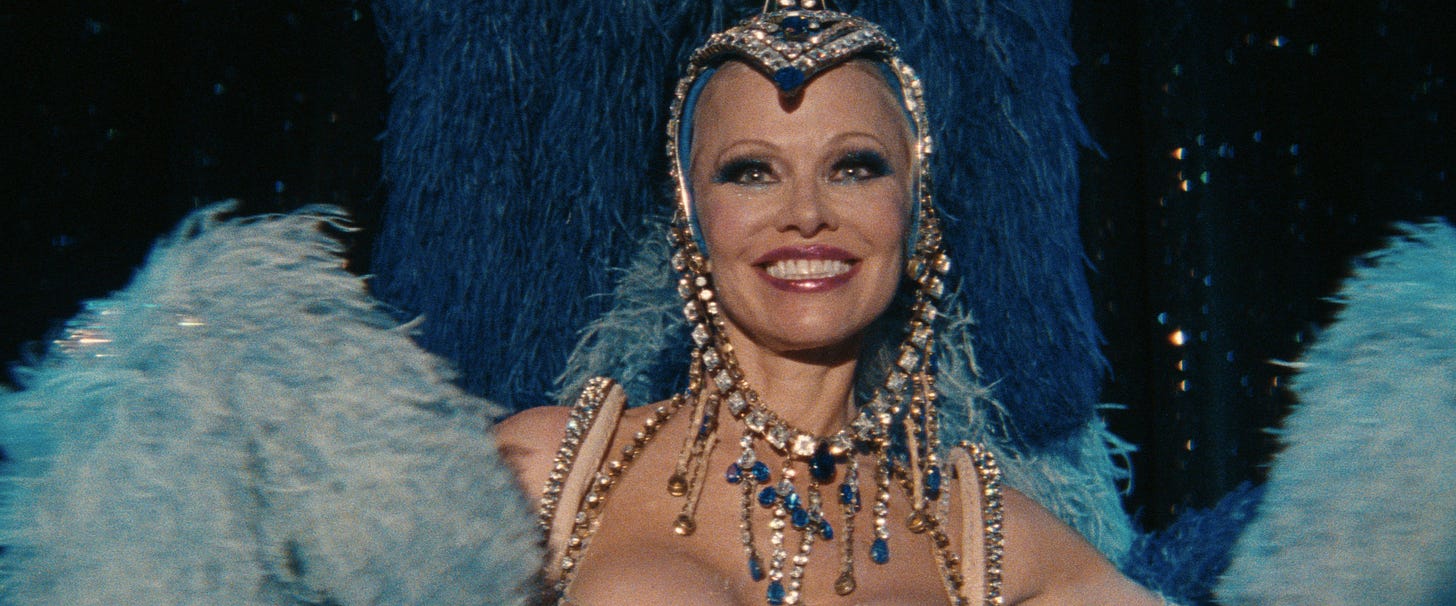
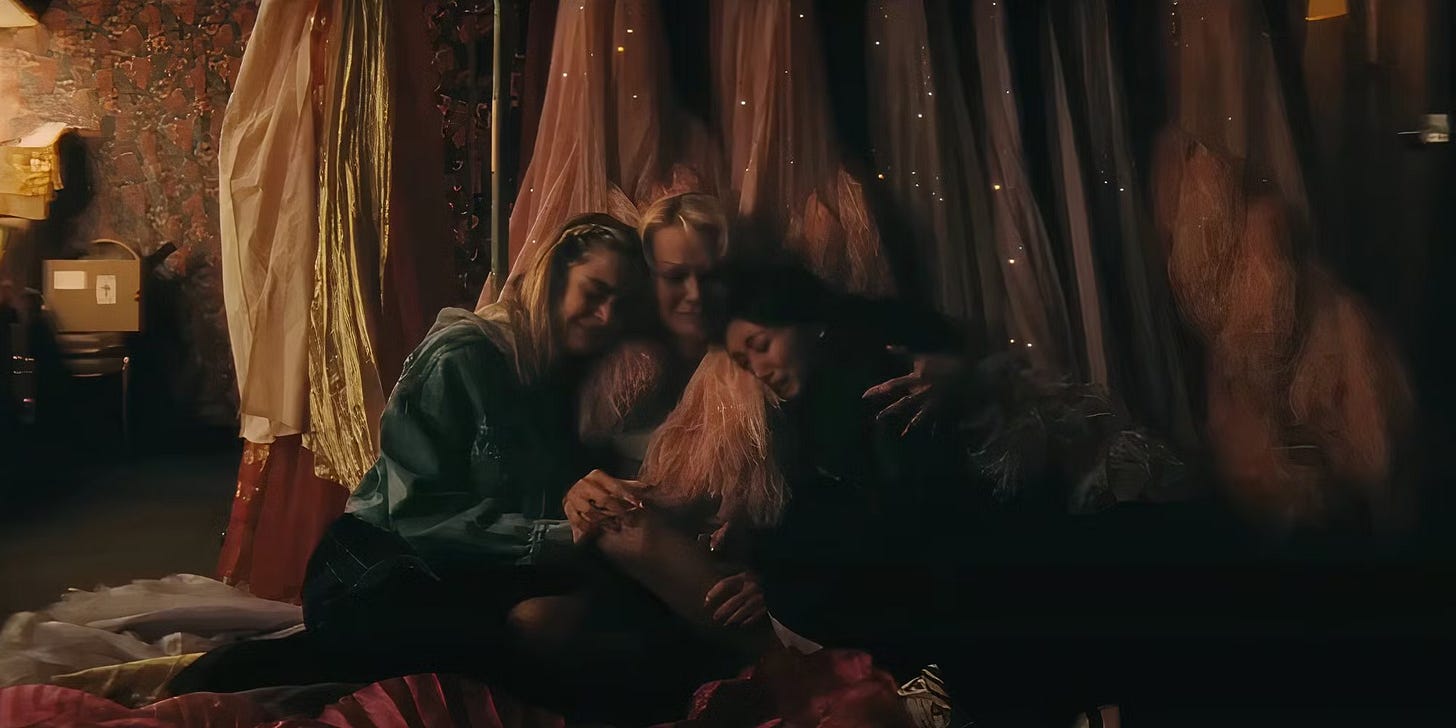
Justice for Annette! This is probably my favorite casting work of the year, and one of my favorite movies directed by a Coppola.